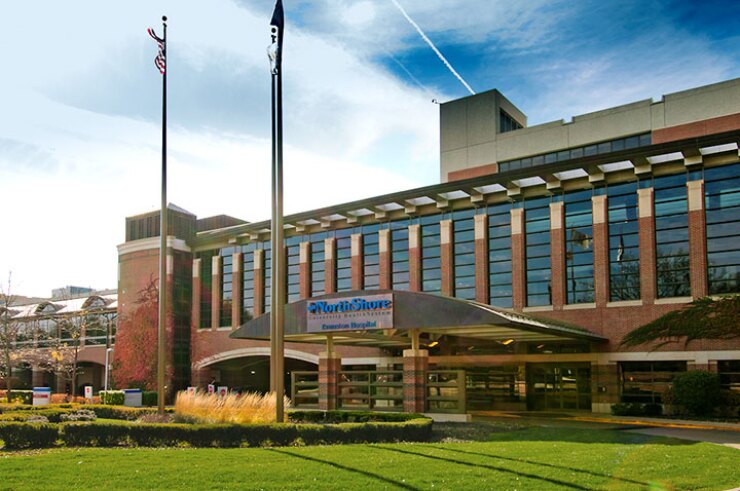Two Chicago area not-for-profit health providers — NorthShore University HealthSystem and Edward-Elmhurst Health — will join forces to form a nine-hospital system.
Warrenville-based Edward-Elmhurst operates three hospitals west of Chicago — Edward Hospital in Naperville, Elmhurst Hospital in Elmhurst and a behavioral facility located on Edward’s campus. Edward and Elmhurst hospitals
Evanston-based NorthShore operates six hospitals in the northern and northwest suburbs and on Chicago’s north side. Many had operated independently and joined the system in recent years including

"NorthShore's approach is aligned with Edward-Elmhurst in so many ways," Mary Lou Mastro, president and chief executive officer of Edward-Elmhurst Health, said in a statement. "We share values and a vision for the future that gives us a strong foundation to create a needed regional alternative offering vibrant, community-connected healthcare.”
NorthShore’s President and CEO J.P. Gallagher will lead the new organization that will be divided into two service regions but governed by a single board. Mastro will serve as CEO of what will be considered the Edward-Elmhurst “region.”
The two systems each will invest $100 million in two community funds that will generate interest earnings to support community investments that advance economic growth and health equity, the systems said Wednesday in announcing the proposed union.
The two aim to close the transaction later this year pending regulatory approval. The merger could face
NorthShore previously attempted to join the state’s largest system, then known as Advocate Health Care, but the Federal Trade Commission challenged it as damaging to competition because of the potential impact on insurer prices and it
President Biden in July signed a sweeping executive order targeting anti-competitive practices across a swath of sectors including technology, transportation, banking, labor, insurance, and healthcare.
The order directs the FTC, which must sign off on mergers and acquisitions, and the Justice Department “to review and revise their merger guidelines to ensure patients are not harmed by such mergers” and vigorously enforce antitrust rules.
The merger plan marks the latest example of the healthcare sector’s ongoing consolidation that has continued amid the COVID-19 pandemic. The pandemic is influencing merger decisions, slowing some while speeding up others, and forcing some hospitals to rethink strategies. Larger systems still seek acquisitions and mergers to leverage their scale and broaden their regional expertise while smaller hospitals are searching for fiscally healthier partners.
A total of 27 mergers and acquisitions involving not-for-profit and for-profit hospitals were announced in the first half of the year, compared to 43 for the first half of 2020, but the revenue accounted for in the transactions remains on par at $17.2 billion this year compared to $17 billion last year, according to Kaufman Hall.
Merger discussions had gone on for several years between EEH and NorthShore officials but the pandemic forced both to focus instead on managing through the impact of COVID.
In June, Fitch Ratings affirmed Edward-Elmhurst’s A rating and stable outlook supported by “a strong financial profile assessment in the context of the system's midrange revenue defensibility and midrange operating risk assessments. The system benefits from a leading market position in a quality service area.” Fitch said EEH’s debt totaled $670 million as of last year.
Moody's Investors Service in April affirmed NorthShore at Aa3 with a stable outlook. S&P also affirmed its AA-minus rating. Both reports were tied to NorthShore’s assumption of Swedish Covenant’s debt. Moody’s reported NorthShore’s rated debt at $510 million.
"The rating reflects NorthShore's very strong balance sheet and our assessment of the system's integrated business model, with six hospitals, a large employed physician group, and a significant outpatient presence in a demographically favorable service area," said S&P.





